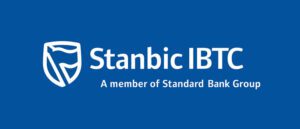
Panic as Kuda Bank incurs loss in 2021
By Seun Ibiyemi
Customers of Kuda Bank have raised concern over reported loss of N6 billion more than 7x the N868 million loss it reported in 2020.
The company’s result was first reported by Techcabal a Nigerian-based news website focused on covering the tech sector in Africa. Though a copy of the financial statements is yet to cite.
Kuda Bank is a poster company for Nigeria’s burgeoning FinTech startups and has garnered widespread attention over its disruptive banking operations.
The bank styles itself as the “bank for the free” and does not charge its customers for transfers within the bank. Kuda Customers, however, get 25 free transfers to other banks every month. Extra transfers to other banks cost 10 each.
Some of these disruptive banking models have made it the darling of young Nigerians. However, this comes with a huge cost as the report clearly elucidates.
On aggressive lending, the company makes money by giving our micro-loans to retail borrowers, SMEs, farmers, and traders all classified as subprime and highly risky.
According to the report, Kuda Bank reported revenue of N3.2 billion in 2021 up from N72.6 million reported in the same period in 2020.
The 44x rise in revenue in just one year is a result of the aggressive growth and market penetration the bank has deployed during the year as it focused on increasing its loan book.
Startups especially in FinTech pursue aggressive growth strategies mostly in a bid to meet targets ahead of future equity rounds.
Just last year, Kuda Bank raised $55 million in a Series B round at a valuation of $500 million. This was a few months after it raised a $25 million Series A round.
It is not inconceivable that part of the terms of the raise is for the company to adopt a growth strategy.
Aggressive Losses: As the company focused on aggressively growing its loan books so did defaults and higher operating costs.
According to the report from Techcabal, the bank reported an impairment charge of N2.2 billion meaning about 68.7 per cent of its loans are either bad or classified as going bad.
Prudential banking guidelines require that banks make provisions for loans when they are non-performing (borrowers not servicing debt).
An a non-performing loans (NPL) rate of 69 per cent Kuda Bank is more than 3x the average 15 per cent.
The report also stated that Kuda Bank’s impairment charge of N2.2 billion made up about 96 per cent of its interest income effectively wiping out 96 per cent of interest received.
Also contributing to the losses are the bank’s high operating expenses which ballooned from N 215.4 million to about N1.28 billion.
A cursory review of the report from Techcabal suggests the bank’s aggressive loan growth strategy is the primary driver of losses.
Customers of the bank have often taken to social media to express surprise about unsolicited offers for credit from the bank.
Depositors get as much as N150,000 in unsolicited credit offers after just performing limited transactions.
Since they operate in a very high-risk segment of the market it is not unexpected that they will incur significant losses in the short to medium term.
The bank is also spending heavily on customer acquisition and claims to have over two million registered users. It also has about one million app downloads on the Google Playstore.
Achieving these milestones in over three years requires significant spending on advertising, marketing, and technology.
The bank’s losses were also due to higher personnel costs after it hired expatriates to join its leadership teams. It is likely to continue spending more on personnel as it expands its loan book and operations.
This is the first time Nigerians will have an insight into the financial statements of Startups like Kuda Bank which have raised millions of dollars in funding at very high valuations.
Kuda Bank’s result clearly shows some of the valuations are not based on fundamentals but largely based on a promise that the companies have a business model that will eventually start making money.
For some Fintech startups, making money is not the ultimate goal, rather they target potential acquisitions from bigger more profitable banks looking to expand into the digital sphere.
Paystack for example was acquired by Stripe meaning the company did not need to make any profit to be acquired at valuations topping a billion dollars.
The report also shows how risky it is to bet on an aggressive increase in lending to young Nigerians. Future funding rounds for Startups operating in the FinTech space might be affected following these results.
Already, the Startup market is experiencing contraction as investors demand better performance from founders.
The banking regulator, the CBN, and the NDIC might also be watching the development closely and could call for more capital from Kuda Bank if the spate of losses is not contained.



